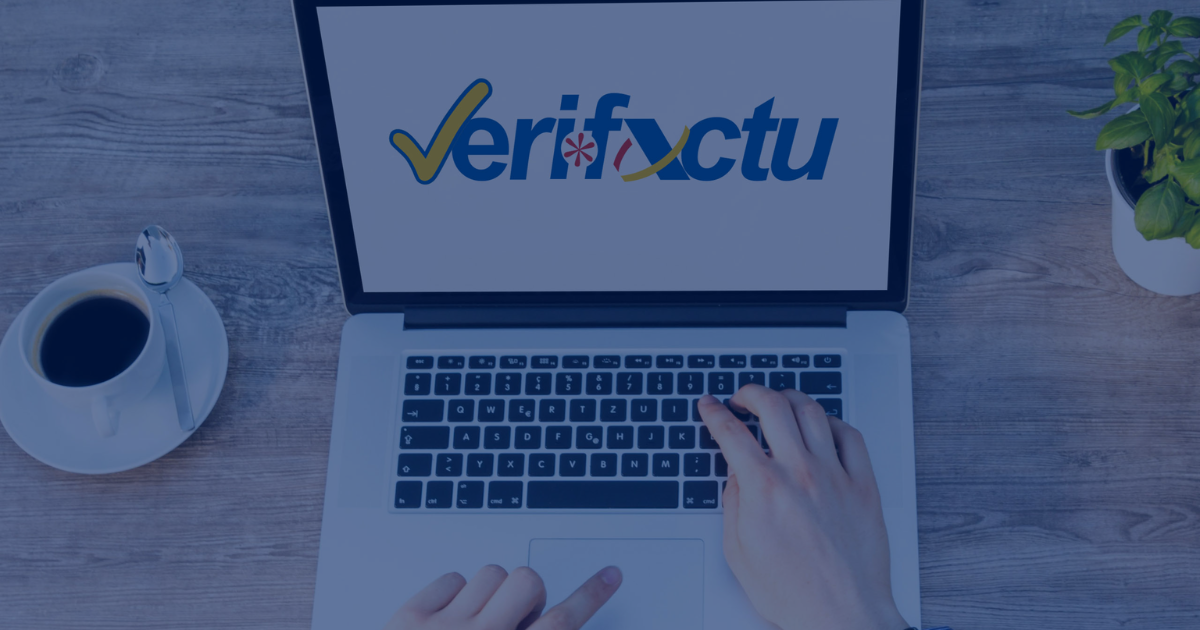La administración tributaria ha pulsado el botón de pausa para las empresas españolas con la reciente publicación del Real Decreto 254/2025, de 1 de abril, que prorroga la entrada en vigor del Reglamento VeriFactu. Esta normativa, que afecta a los sistemas informáticos de facturación, exige que las facturas sean trazables, inalterables y alineadas con los estándares técnicos definidos por Hacienda.
La prórroga es una respuesta a la publicación tardía de la Orden Ministerial 1177/2024, que regula los detalles técnicos y que inicialmente fijaba la entrada en vigor para julio de 2025. Ahora, los nuevos plazos amplían el horizonte para que los contribuyentes puedan adaptar sus sistemas sin riesgos de incumplimiento.
En este artículo, te explicamos en detalle qué supone esta prórroga, quiénes están afectados, qué exenciones existen y te ofrecemos un checklist práctico para que tu empresa cumpla con los nuevos requisitos sin contratiempos.
¿Qué es el Reglamento VeriFactu y por qué es importante?
El Reglamento VeriFactu es una normativa que regula los sistemas informáticos utilizados en los procesos de facturación para garantizar que las facturas sean:
- Trazables: Cada factura debe poder ser seguida a lo largo de todo su ciclo de vida.
- Inalterables: No se pueden modificar una vez emitidas.
- Conformes con estándares técnicos: Deben cumplir con las especificaciones técnicas establecidas por la Agencia Tributaria.
El objetivo principal es combatir el fraude fiscal y asegurar la transparencia en la emisión y gestión de facturas. Esto implica que los sistemas de facturación deben contar con mecanismos tecnológicos que garanticen estas condiciones.
Esta normativa es especialmente relevante para empresas, autónomos y entidades que emiten facturas, ya que el incumplimiento puede acarrear sanciones económicas y problemas legales.
Consulta el texto oficial del Real Decreto 254/2025 en el BOE para revisar todos los detalles legales.
Nuevos plazos tras la prórroga: ¿cuándo debes tener tu sistema adaptado?
La Orden Ministerial 1177/2024, publicada el 17 de octubre de 2024, establecía inicialmente que la obligación de adaptar los sistemas de facturación entraría en vigor en julio de 2025. Sin embargo, la publicación tardía de esta orden dificultó la adaptación tecnológica en tiempo y forma.
Por ello, el Real Decreto 254/2025 ha prorrogado los plazos de la siguiente manera:
- Sujetos pasivos del Impuesto sobre Sociedades: deberán tener sus sistemas adaptados antes del 1 de enero de 2026 (en lugar del 1 de julio de 2025).
- Resto de obligados tributarios (autónomos, entidades en régimen de atribución de rentas, contribuyentes del IRNR con establecimiento permanente): su fecha límite será el 1 de julio de 2026.
- Productores y comercializadores de software: disponen de hasta el 29 de julio de 2025 para ofrecer soluciones compatibles con los nuevos requisitos.
Esta ampliación permite a las empresas y proveedores de software contar con un margen razonable para cumplir con las exigencias técnicas sin poner en riesgo su operativa diaria.
¿Quién queda exento del Reglamento VeriFactu?
El Real Decreto introduce una precisión importante: los contribuyentes integrados en el Suministro Inmediato de Información (SII) quedan exentos de aplicar el Reglamento VeriFactu en los casos en que las facturas sean expedidas materialmente por el destinatario o por un tercero en virtud de normas de obligado cumplimiento.
Esta exención se basa en la lógica jurídica y técnica de que la trazabilidad de las operaciones ya queda garantizada por la mecánica del SII, que es un sistema de comunicación directa y casi inmediata con la Agencia Tributaria.
Cambios normativos clave: artículos 4 y 6 del Real Decreto
El Real Decreto 254/2025 también modifica aspectos importantes del Reglamento VeriFactu, especialmente en los artículos 4 y 6:
- Artículo 4: redefine el ámbito objetivo del reglamento, delimitando con mayor precisión los casos excluidos y eliminando apartados que habían quedado redundantes tras la evolución normativa y operativa.
- Artículo 6: enfatiza que la responsabilidad del obligado tributario sobre la veracidad y cumplimiento de las obligaciones facturadoras no se disipa, aunque la factura sea emitida materialmente por otro sujeto. Esto significa que, aunque delegues la emisión de facturas, la responsabilidad final sigue siendo tuya.
Estos cambios buscan clarificar las obligaciones y responsabilidades para evitar interpretaciones erróneas o vacíos legales.
Checklist para preparar tu empresa ante la prórroga del Reglamento VeriFactu
Para ayudarte a cumplir con esta nueva obligación, te ofrecemos un checklist práctico que puedes implementar en tu empresa:
- Revisa y actualiza tu sistema de facturación
Verifica que tu software cumple con los requisitos de trazabilidad, inalterabilidad y estándares técnicos. Consulta con tu proveedor para confirmar que la solución está adaptada o en proceso de actualización.
- Planifica la adaptación según tu perfil tributario
- Si eres sujeto pasivo del Impuesto sobre Sociedades, tu fecha límite es el 1 de enero de 2026.
- Si eres autónomo, entidad en régimen de atribución de rentas o contribuyente del IRNR con establecimiento permanente, tu fecha límite será el 1 de julio de 2026.
- Contacta con tu proveedor de software
Asegúrate de que tu proveedor pueda ofrecer una solución compatible antes del 29 de julio de 2025, fecha límite para productores y comercializadores.
- Evalúa si aplicas a la exención SII
Si facturas bajo el SII y las facturas las expide materialmente el destinatario o un tercero, revisa si estás exento de aplicar el Reglamento VeriFactu.
- Actualiza tus procedimientos internos
Forma a tu equipo en los nuevos requisitos y documenta los procesos de emisión, almacenamiento y gestión de facturas.
- Mantén la responsabilidad fiscal clara
Recuerda que la responsabilidad sobre la veracidad y cumplimiento de la facturación es siempre del obligado tributario, aunque delegues la emisión.
- Consulta con tu asesoría fiscal y legal
Ante cualquier duda o para un acompañamiento personalizado, contacta con expertos que te ayuden a cumplir con la normativa sin riesgos.
Caso práctico: consecuencias de no adaptar tu sistema a tiempo
Imagina que eres una empresa sujeta al Impuesto sobre Sociedades y no adaptas tu sistema antes del 1 de enero de 2026. Esto puede suponer:
- La imposibilidad de emitir facturas válidas según la normativa vigente.
- Sanciones económicas por incumplimiento de obligaciones fiscales.
- Problemas en auditorías y revisiones tributarias.
- Pérdida de confianza de clientes y proveedores al no poder garantizar la validez y trazabilidad de las facturas.
Este escenario puede afectar gravemente la operativa y reputación de tu empresa. Por eso, anticipar la adaptación es clave para evitar riesgos.
Preguntas frecuentes sobre la prórroga del Reglamento VeriFactu
¿Qué pasa si mi proveedor de software no está listo a tiempo?
Debes exigir una declaración responsable y, si es necesario, buscar alternativas homologadas para cumplir con los plazos.
¿La prórroga afecta a la facturación electrónica obligatoria?
No, la obligación de factura electrónica sigue su calendario, pero VeriFactu añade requisitos técnicos adicionales que deben cumplirse.
¿Qué sucede si uso SII?
Si tus facturas las emite el destinatario o un tercero bajo SII, quedas exento del Reglamento VeriFactu para esas operaciones.
Conclusión
La prórroga del Reglamento VeriFactu es una oportunidad para que las empresas españolas adapten sus sistemas de facturación con garantías y sin prisas. En VASALTO, gestionamos lo obligatorio para que te enfoques en lo importante. Si tienes dudas sobre cómo afecta esta normativa a tu empresa, no dudes en contactarnos para asesoría personalizada y acompañamiento en el cumplimiento.
Si deseas conocer más sobre este tema, la Agencia Tributaria ofrece una guía completa sobre VeriFactu y cómo afecta a tu empresa.



